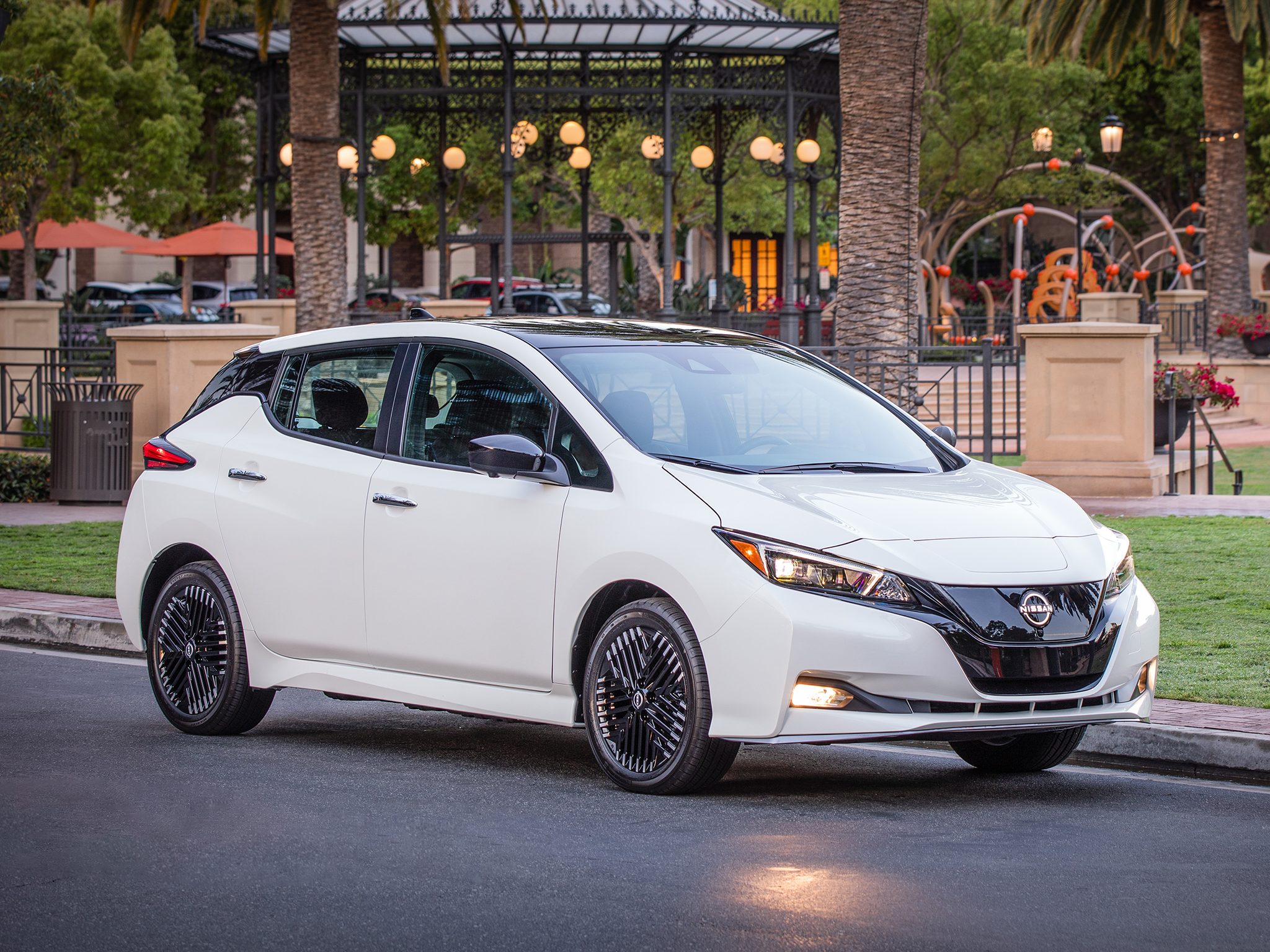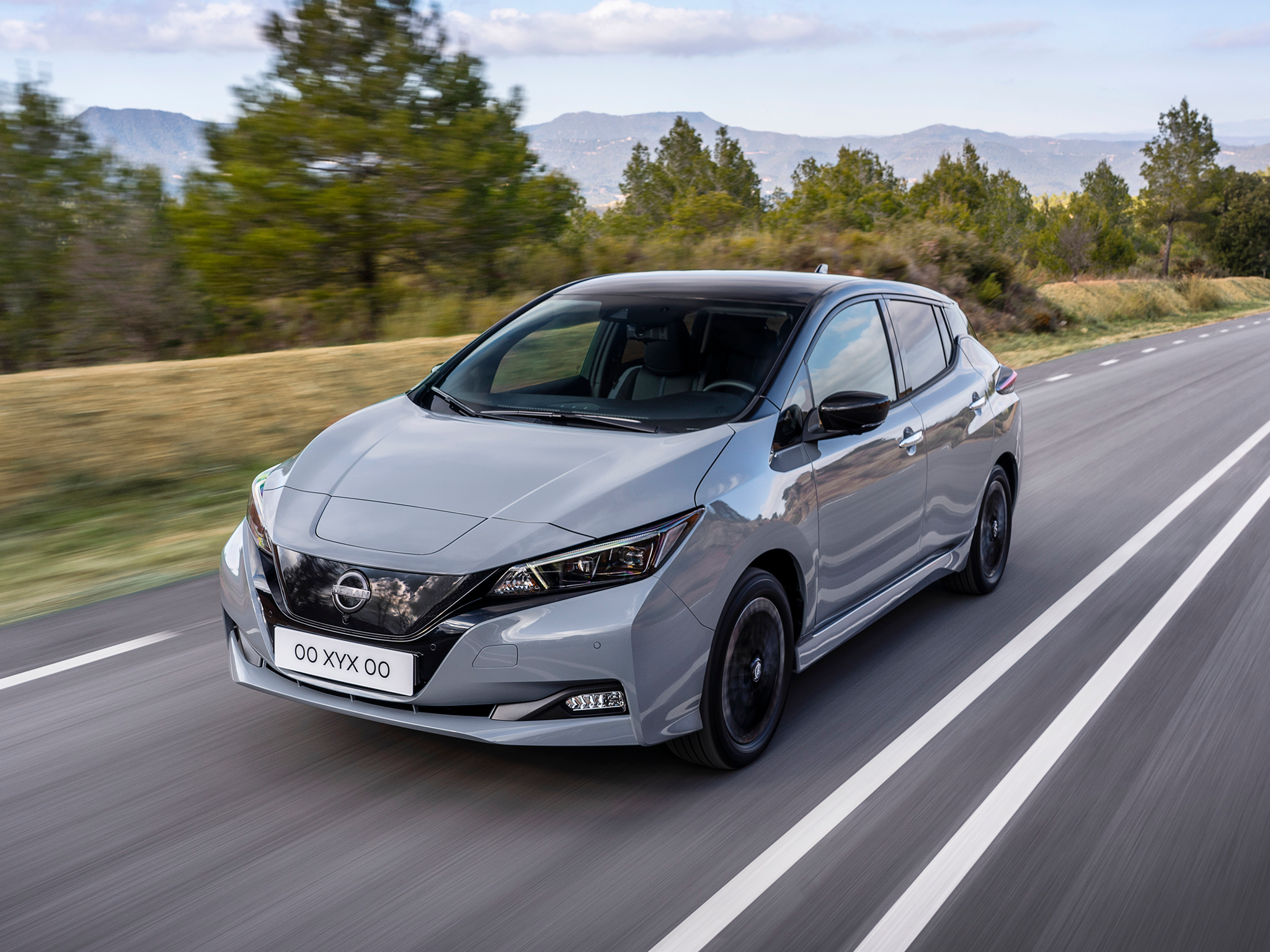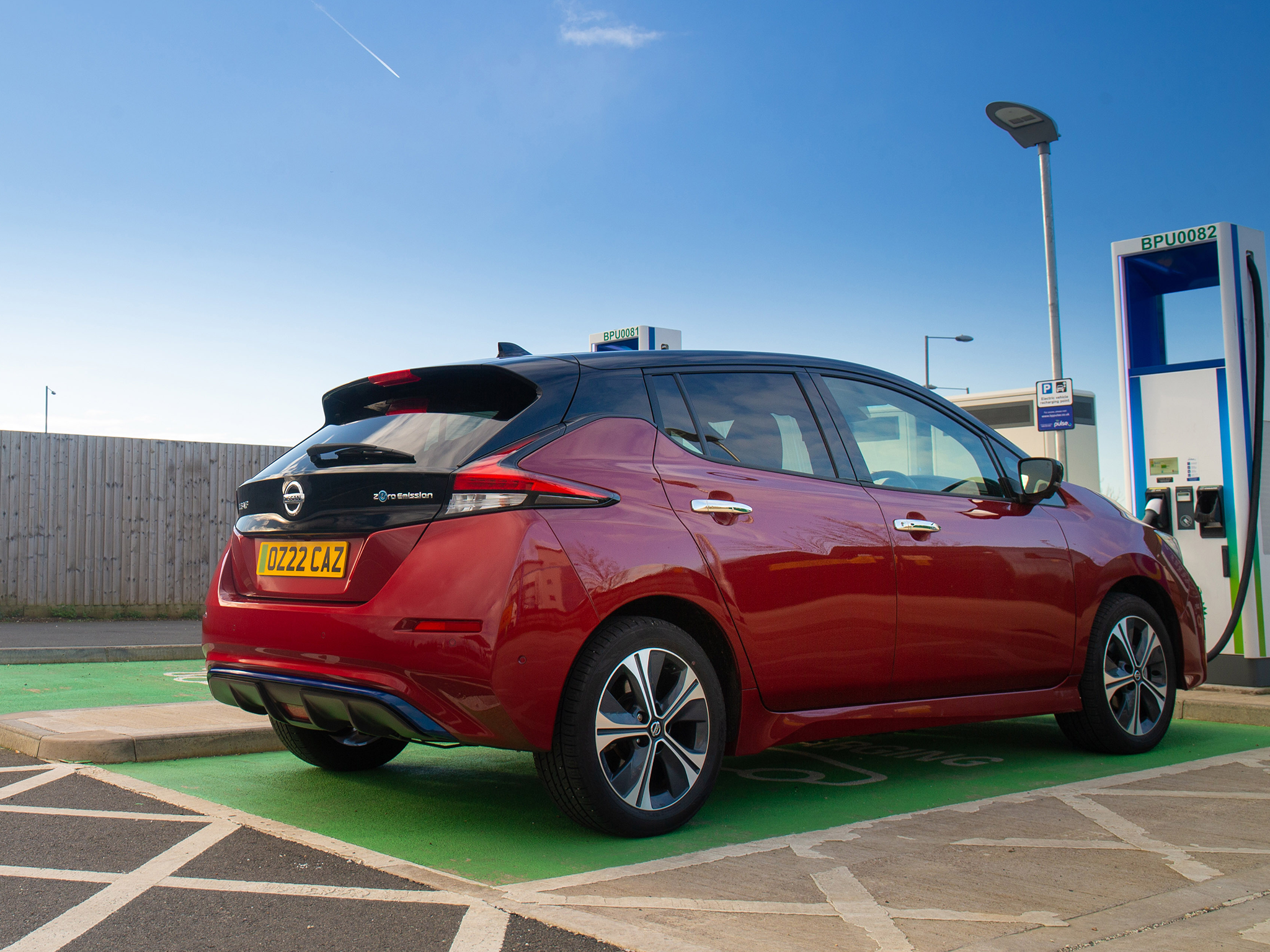
Once a pioneer of the EV world, the current-generation Nissan Leaf now finds itself eclipsed in a market brimming with over a hundred alternatives. And now, with a new 2025 Nissan Leaf on the horizon, there’s almost no reason to consider driving the past-its-prime EV.
While this updated second-generation model retains some practical merits – decent passenger and boot space, user-friendly controls, and good all-round visibility – it lags significantly behind contemporary rivals. Its modest 39kWh battery offers a meagre maximum range of 168 miles, a figure dwarfed by similarly priced competitors. Compounding this, slow charging speeds and the increasingly outdated CHAdeMO connector solidify its status as an EV feeling decidedly behind the curve of 2020s innovation.
How we tested
Having driven the Leaf for many thousands of miles, including a stint with the latest version as our main family car, the EV’s limitations have become clear. It can handle family duties, but rivals now run rings around the Leaf in terms of space, quality and especially driving range.
Nissan Leaf: From around £5,000 used, Nissan.co.uk

Independent rating: 5/10
- Pros: Spacious, affordable
- Cons: Range, charging speed, quality, lumpy ride
Nissan Leaf specs
- Price range: From around £5,000 used
- Battery size: 39kWh
- Maximum claimed range: 168 miles
- Miles per kWh: 3.0
- Maximum charging rate: 50kW
Battery, range, charging, performance and drive
Nissan has slimmed down its range so the bigger battery model has disappeared from price lists – probably to send more people in the direction of the bigger (and better) Nissan Ariya. If you’re not likely to venture too far in your EV, the Leaf with its 39kWh battery offers a maximum range of 168 miles – that means probably around 130 in the real world, although if you only drive in town, you might get closer or even beat that official average figure.
When it comes to fast charging, Nissan has stuck with a different route to others with its CHAdeMO port – a slightly different configuration to the now normal CCS chargers. There are still plenty of rapid CHAdeMO chargers around, though, but the fastest speed they’ll deliver power at is 50kW, so Nissan says it’ll take around 60 minutes to get from 20 to 80 per cent charge.
Like all EVs, the Leaf still feels reasonably swift when you put your foot down, getting from zero to 60mph in 7.9 seconds. There’s also one-pedal driving (Nissan calls it e-Pedal), where the car will slow to a complete stop just by lifting off the accelerator. It takes some getting used to, but makes driving a lot easier.
The ride is a bit firm over lumps and bumps, though – another area where the Leaf is showing its age.
Interior, practicality and boot space
Space and practicality is one area where the Leaf still manages to compete. It’s both longer and taller than a Volkswagen Golf, which pays dividends with passenger and luggage space – four people can travel in reasonable comfort: five at a push.
The driving position is a bit too upright for my liking, though, especially with a steering wheel that adjusts only up and down, not in and out – a bit of a rarity these days. Rear passengers sit a little higher – again, due to where the battery is sited – but that doesn’t affect head room.
The boot is a good size, too, at 435 litres, with Nissan providing a couple of handy netted areas at the side of the luggage area for you to keep your electric charging cables.
Where the Leaf doesn’t really score highly is on the little cubbies that are so useful around a cabin – surprising given how good the Nissan Qashqai is with things like that.

Technology, stereo and infotainment
As well as being a pioneer with electric cars generally, Nissan has also been at the forefront of autonomous driving, and the Leaf can be bought with ProPilot Assist – a semi-autonomous driving system that will take care of the acceleration, braking and steering on the motorway. The driver still has to remain in control, but it can make longer journeys considerably more relaxing and Nissan’s system is a good one.
Top spec cars will also get the excellent Around View Monitor that gives a view all around the car for help when parking – it’ll also detect moving objects – but the eight-inch touchscreen is mounted low and feels quite small by today’s standards. It does get Apple CarPlay and Android Auto connectivity, though.
Tekna models at the top of the range get an upgraded Bose sound system with seven speakers, although – like the standard audio unit – it’s not exactly at the high end of hi-fi.
Prices and running costs
The Leaf is one of the more affordable EVs on second hand market, and it really needs to be as it’s feeling more and more outdated every day. Even the cheapest car gets a decent amount of kit however.
There are far more efficient EVs out there, too – figures from the Vehicle Certification Agency shows average energy consumption of 3.0m/kWh – not a great result for a modern EV.

Nissan Leaf rivals
FAQs
What should I know before buying one?
That you’re making a mistake. The current-generation Nissan Leaf is antiquated in pretty much every aspect, and a new 2025 edition is coming very soon.
How long does it take to charge?
On a CHAdeMO 50kW fast charge, Nissan says it will take around 60 min to get from 20 to 80 per cent charge but it’s clear that the time is dependent on charging conditions
How much does it cost - is it worth it?
We’ve seen second-hand Nissan Leaf prices from around £5,000, but we’d look elsewhere for better value.
Does Nissan replace batteries for free?
The batteries are covered by an eight-year, 100,000-mile warranty, with EV components covered for up to five years.
Why trust us
Our team of motoring experts have decades of experience driving, reviewing and reporting on the latest EV cars, and our verdicts are reached with every kind of driver in mind. We thoroughly test drive every car we recommend, so you can be sure our verdicts are honest, unbiased and authentic.
The verdict: Nissan Leaf
Nissan missed a golden opportunity with the Leaf. Where most people think of a Tesla when you mention an electric car, the Leaf was there long before Musk’s saloon. Nissan just hasn’t updated the Leaf quickly enough to maintain first mover advantage, giving the upcoming 2025 Nissan Leaf an uphill battle for recognition.
Living with the Mini Aceman: It’s a hit with Gen Z
Best electric cars 2025: Top 10 EVs to buy and the ones to avoid
Car makers have a surprising new target demographic – your dog
Best used electric cars 2025: Top 10 second-hand EVs to buy
Hyundai Kona review: Comfortable electric hatchback with long range
Best used electric cars 2025: Top 10 second-hand EVs to buy
The Nissan Leaf is making a comeback – and it’s got a fresh new look
Best small electric cars 2025: Top 11 affordable compact EVs to buy







